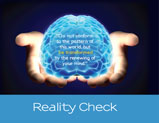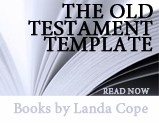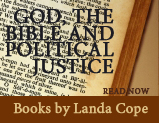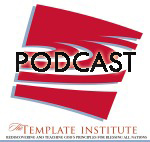Gud, Bibelen og politiske Justice: Del 2, Innledning
Moses og The Law-normative
Mal for en nasjon
Gud legger ut sin bibelske åpenbaring av seg selv på en tidslinje, begynner med skapelsen, Mannen er anstendig i global vold, flommen, man’s decent into violence again and finally Abraham and God’s strategy of using one nation to reveal His heart and strategy for all nations. Through Abraham and his descendants God will bring “the Law,"Hans tenkning om hele livet og" hans Sønn,” His solution for redemption of all creation. The Law will “bless” those who live by it, sette dem fri fra tyranni, og Messias vil bringe utgivelsen fra "slaveriet under synden."
Hele Skriften refererer til og bygger på de lover Moses, Mosebøkene. I Matteus, Jesus gjør det klart at loven og profetene bygge fundamentet for hans budskap og hans handlinger:
17″Tror ikke at jeg er kommet for å oppheve loven eller profetene!; Jeg er ikke kommet for å oppheve, men for å oppfylle. 18Jeg forteller deg sannheten, Før himmel og jord forgår, ikke den minste bokstav, ikke minst slag av en penn, vil på noen måte forsvinner fra loven forgå, før alt er skjedd. 19Alle som bryter et av de minste av disse budene og lærer andre å gjøre det samme skal kalles den minste i himmelriket, men den som holder dem og lærer andre dem, han skal kalles stor i himlenes rike. 20For jeg sier dere: Dersom ikke deres rettferdighet overgår de fariseerne og de skriftlærde, du vil sikkert ikke komme inn i himlenes rike.
If our thinking does not build on the values of the Law then we cannot understand where Jesus is taking us with His message. He is not giving us a sympathetic, ryggesløs, feel good broth. He is actually raising the requirements of the Law to righteousness beyond what Moses could have comprehended. We do not reinterpret the Old Testament with the New, heller ikke det nye med det gamle, but rather see them as a four thousand year line of thought that God is building. It is a continuum of ideas that begin in Genesis and build towards His ultimate return and what we are to do in the mean time.
It is impossible to define “justice or mercy” without the Old Testament definition of “justice and mercy.” It is impossible to define “political justice” without God’s definition in the Old Testament. These concepts do not mean whatever we want them to mean because of our gifts or personality, culture or times. They mean something quite specific to God and only He has the right to define them for us. If we seek to be God’s ambassadors them we must represent His policies not the current policies of the world or even in some cases the thinking of Christians in our age.
Loven normative / The Law Historical
Loven er et all-inclusive-setning for både normative lover, for eksempel Ten Commandments, and the Law applied in the history of Israel. Remember the “knowing” in the Hebrew concept was being able to do as well as repeat. So the test of Israel’s understanding of the Law is in their application of the Law to the times they live in. God corrects them as they take action and reveal their understanding of what they think He has said. So the historical books from Joshua through Ester are as important to our understanding of the five books of Moses as the five books are.
Loven er gitt i to former, the prescriptive and the historical. The prescriptive gives us the dos and don’ts while the historical gives us the application of the Law in Jewish history and the fruit of their interpretation of the Law gives us an understanding of whether they understand God’s thinking by producing “good” or “bad” consequences. The Law includes what God said in the first place, what the Jews did and what God had to say about what they did. God clarifies the “meaning” of the Law through the history of its application, first by the Jews and later by the Gentile nations. And so we are still today proving by our choices the consequences of applying or not applying the values of God in our communities.
The Prophets are sent by God to tell the Jews why they are going though the circumstances they are experiencing as a nation. Referring back to the Law of Moses, Profetene peke ut hva jødene har gjort, how it compares to what God said and why they are or will experience the consequences of those choices. The Prophets point out what they must do, basert på loven, hvis de ønsker å stoppe eller reversere konsekvensene av disse valgene og gå tilbake til en tilstand av Guds velsignelse.
The Messiah comes saying that He has come to build on the Law and the Prophets not to eliminate them. He has come to reveal and secure “righteousness” for us, which the Law was never going to be able to produce. Because no matter how much we obey the Law, synd fortsetter å diskvalifisere oss fra Kingdom, selv mens velsigner oss på jorden.
For our purposes in this book we will look at the prescriptive and historical separately to try to draw out what is being emphasized in each. But for the development of our thinking we must see them as integrated. So in effect we “dissect” to analyze but must put them back together to find application. For eksempel, the prescriptive law says adultery is to be punishable by death. But historically this death penalty is not applied to David when he commits adultery with Bathsheba. Hvorfor? Did they just not apply the Law? Eller, var det mer til "the Law" enn bare forbud? Was the right of the people to ratify or change civil law part of the values “the Law” secured?
Hvis vi deler den normative lov ut fra historiske og deretter dele det med de verdiene den opprettholder, du vil isolere fem verdiene Gud styrker i og gjennom alle domener og alle livets:
- Livet er hellig
- Den materielle verden er reell og god og viktig for alt liv
- Ord har makt og vi er ansvarlige for dem
- Alt trenger og er innløses
- Enhver tenkning som tar oss bort fra Guds verdier vil begynne å ødelegge (vil ikke velsigne) oss.
Den normative og historiske loven etablerer fire institusjonene gitt av Gud med definisjon av formål, autoritet og grenser til denne myndighet:
- Den enkelte
- Familien
- Civil styresett
- Den institusjonelle kirke
Hver av disse "institusjoner" er gitt en form for myndighet, ikke all myndighet, snøbrettkjørere, rettigheter, freedoms and responsibilities. They lay the foundation for the values base on civil law. These values do not perfect human beings or society but, til nivået de er etablert og forsterket, they will create and sustain a more blessed society. These values and institutions when applied reveal God to the human community. They work with the cross to reveal Christ the King but they do not substitute for forgiveness and salvation through Jesus. They reveal the Kingdom that is coming but they cannot perfect that Kingdom on earth. Established and used properly these values produce a higher quality of life in all areas of life but they will not finally perfect man or creation.
I sin serie om den amerikanske grunnloven, Fred Friendly of Columbia University og tidligere president i CBS News kalles disse (å bli sett opp)...
We now have four assumptions on which God builds all His thinking. Five values that are essential to uphold if these assumptions are true, og fire institusjonelle myndigheter at Gud gir oss for å bevare og videreføre disse sannheter og verdier i den hensikt velsignelse.
Disse bibelske realiteter sette opp en "spenning" av frihet, rettigheter og plikter som må opprettholdes for å bygge sunne individer, families and communities. They cannot be “balanced” they must be mutually maintained. If we error in one direction or the other we distort God’s plan. God has made the individual free and sovereign. Men, siden det er sant for hver enkelt, there are limits to the freedom of any single individual. In order for every individual to be free there have to be limits to all of our freedoms. Who has the right and responsibility to create and sustain those boundaries? God has created the family as the authority for and over children. The authority of parents is loving their children. If they are trying to murder their children they are in violation of the sacredness and rights of the individual child’s life. I have the freedom to believe what I live. Do I have the freedom to practice that freedom anywhere anytime or any place? If I believe in human sacrifice for my blessing do I have a right to do it? Or is this an abuse of the sacrifice’s rights? Do we have rights as communities? If most of us agree that murder should be illegal, har vi rett til å gjøre det ulovlig? Are there boarders to the rights of the community? How do we secure minorities rights to action, barneoppdragelse og tro samtidig ikke ødelegge rettighetene til de samfunnene?
I alle disse tingene er vi stiller spørsmålene:
- Hvem har rett til å styre de mange?
- Fra hvor de får denne myndigheten?
- Hva er den måten at fullmakten er å bli henrettet?
- Hva har denne myndigheten rettigheter enn?
- Hva er grensene for denne myndigheten?
Hver styringssystem har svar på disse spørsmålene, or is working on them. But are they Biblical answers? We can know what God says about each question. We can know, til enhver tid, where our nations laws and system of governance are blessed or in danger. This is the Biblical Template, men vi må være villig til å utveksle de tenker på verden selv når den har blitt kalt "kristne" og erstatte det med Guds tenkning, selv når det kalles "verdslig".







